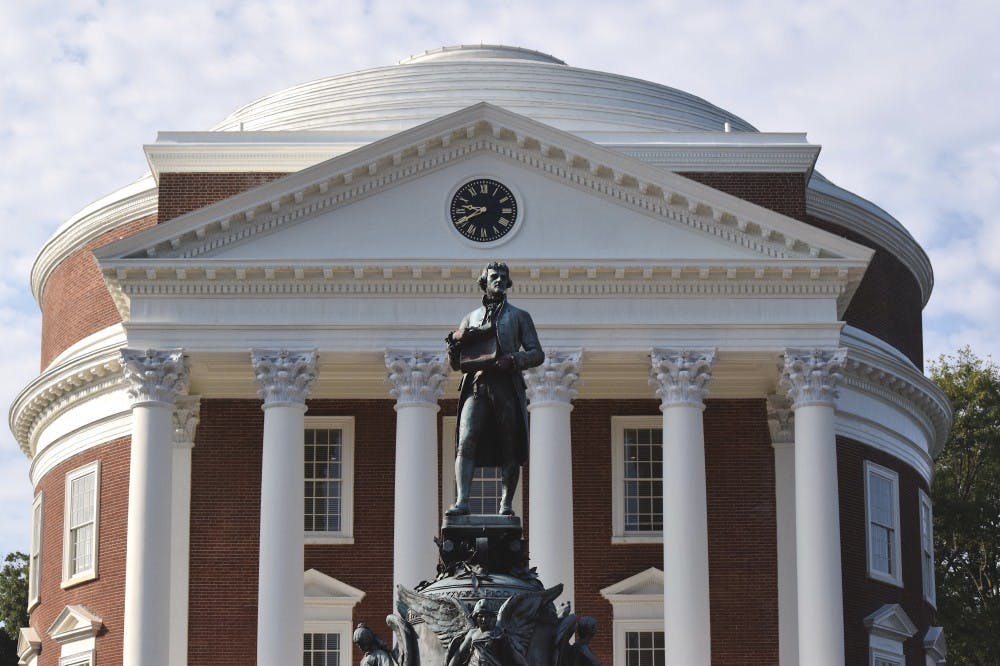Hate speech has become a prominent topic on U.S. college campuses lately. In light of this past August when white nationalist protesters marched across our Grounds, the issue is particularly important for students of the University and residents of the Charlottesville community. Recently, Student Council President Sarah Kenny published a guest opinion column urging students to evaluate hate speech on grounds and consider ways of regulating it. In her article, she argues that certain speech “fails to further the truth seeking charge of our scholars and institution of higher education.” Kenny believes that the University needs to coddle students rather than expose them to different points of view, which is the exact opposite of what an esteemed college should be doing.
Rather than proposing palpable ways of combating hate speech through constructive debate, Kenny defers to the arguments made by Harvard Law Prof. Noah Feldman. Feldman argues that a distinction must be made between public universities and our traditional understanding of the public square, asserting that First Amendment rights should be regulated in order to preserve the intellectual fortitude of our higher education institutions. Ultimately, Feldman’s sole justification for regulating speech is that public universities should “use all lawful means to distinguish the free-for-all of public argument from the structured, reasoned debate to which the university as an institution is supposed to be dedicated.” This rhetoric underscores a major controversy with the process of defining hate speech and determining how that speech should be regulated.
Many public universities have already tried and failed to regulate hate speech on their campuses. In a New York Times Interview this past September, Erwin Chemerinsky, the new University of California Berkeley School of Law dean, explained the history of free speech on public campuses. By the 1990s, over 300 public universities had established campus hate speech codes which regulated free speech rights on public campuses. These codes were intended to prohibit hate speech that marginalized groups including ethnic minorities, women and the LGBTQ community. When put into practice, however, all of these speech codes deferred to arbitrary and vague means of punishing individuals for exercising their right to free speech. As a result, all of these campus speech codes were deemed unconstitutional due to their violation of the First Amendment.
While acknowledging these failed attempts to regulate speech on public university campuses, it is also important to note that there are already limits on speech within the classroom. Constitutional precedent holds that First Amendment rights are already extremely limited in public classrooms. Once a student steps into a lecture hall at any public school or university, she waives her right to exercise any speech that substantially disrupts the class learning environment. Although we cannot apply these constitutional limits to other university spaces, we can control the way we respond to hate speech. I strongly believe that students and faculty must strive to condemn hateful rhetoric at all costs. Simply because someone has the right to speak freely doesn’t mean that what they say is necessarily just, honorable or true. There’s a difference between engaging in constructive debate about hate speech and actively seeking punishment for those who freely exercise their First Amendment rights. Just as hate speech degrades the integrity of those at whom it targets, the act of regulating free speech degrades the integrity of our Constitution.
The University community should encourage public forums about hate speech rather than arbitrarily exclude individuals from the debate entirely. Kenny explicitly argues that “affronts to a person and/or a community’s societal status violate one’s dignity and impede one’s ability to live a free and happy life.” However, I fail to see how guaranteeing one’s right to free speech impedes another person’s ability to live freely. Without this free exchange of ideas, students cannot learn how to respond to dissenting opinions. Without advocating for free speech on campuses, we degrade the constitutional values that give us the right to express our ideas in the first place.
Ultimately, the act of prohibiting hate speech becomes antithetical to the end it aims to achieve. Rather than preserving the intellectual esteem of our country’s public institutions, censorship of speech on public campuses narrows our intellectual scope and restricts the diversity of thought that is so crucial to the intellectual development of our community. It must be recognized that hate speech is constitutionally protected, no matter how repugnant it may be. Regulating hate speech — however that term is defined — inevitably devolves into a slippery slope of unconstitutional restrictions on our freedom of expression that must be avoided at all costs.
Audrey Fahlberg is a Viewpoint writer for the Cavalier Daily. She can be reached at opinion@cavalierdaily.com







